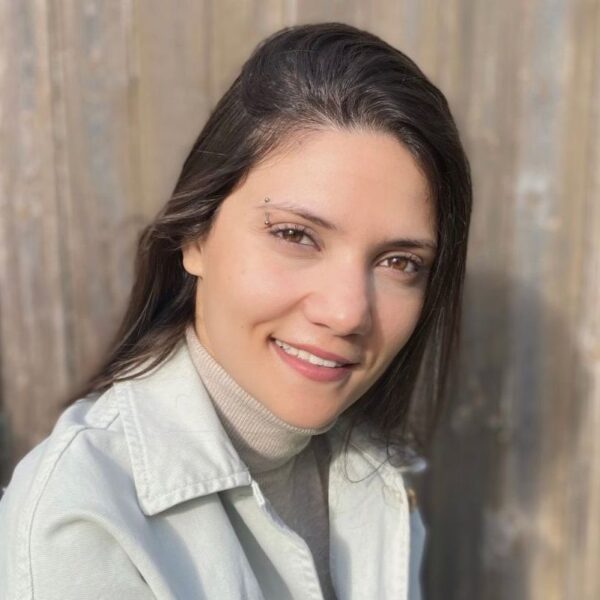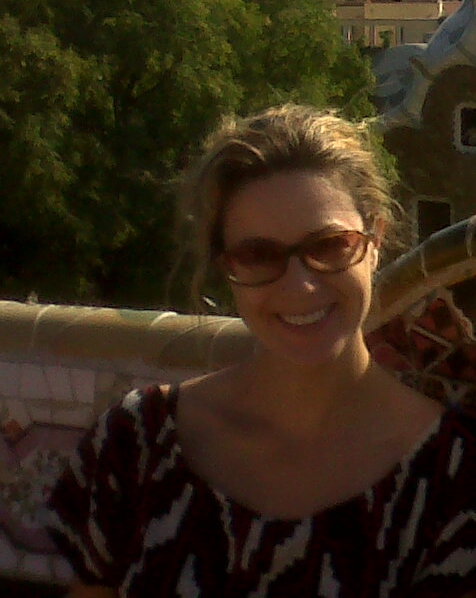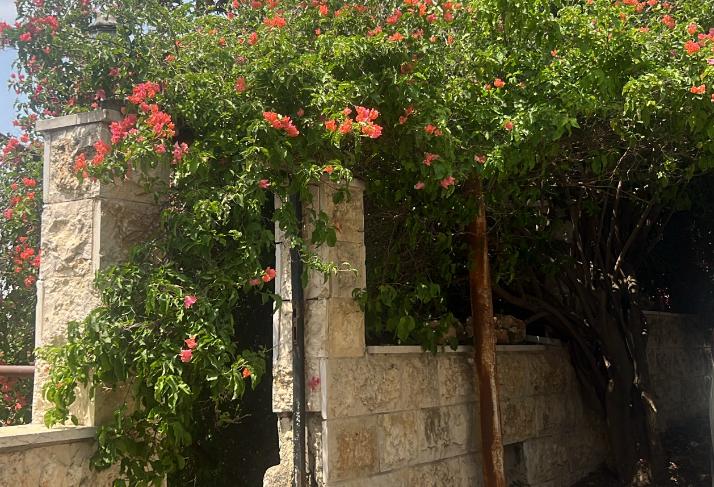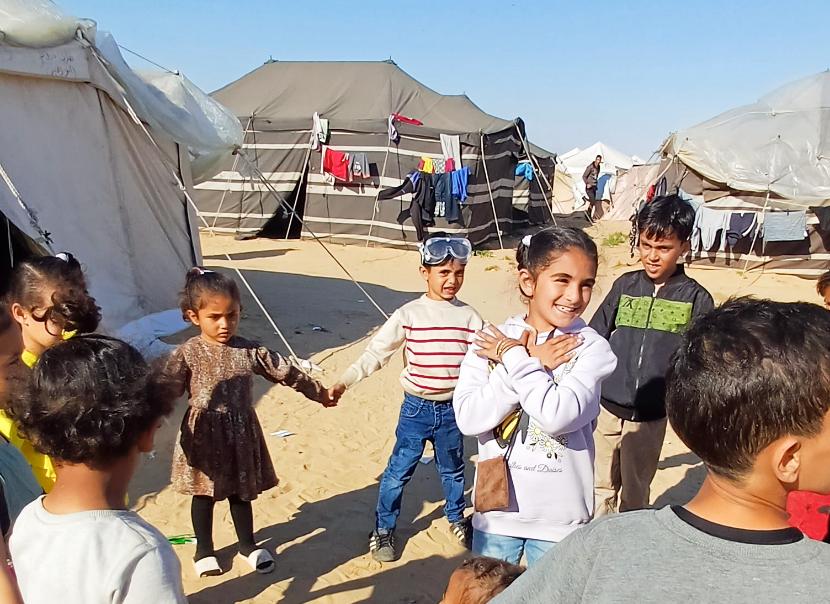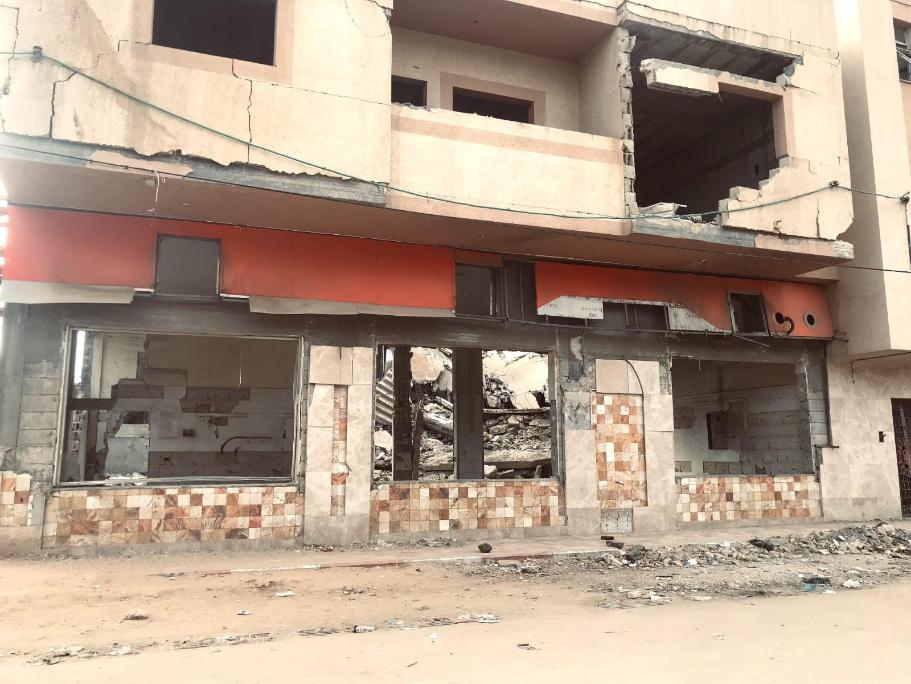Therapy

I tried four different therapists this past year. They were not bad therapists, don’t get me wrong. But this is how most of the conversations go:
“Hey, how are you? What brings you here? Tell me more about yourself.”
These are in fact basic questions required at the beginning of every initial therapy session. What the therapist really expects are simple answers, nothing existential. But for people like us, for someone like me, these basic questions are the most challenging. The questions of who you are and what brings you into therapy are intricately intertwined.
“I am from Palestine, from Gaza specifically.”
It is important to provide the details. I have pretty much memorized the answer, to save some time and money. I am not only from there but lived there most of my life. I lived through three out of the four military assaults on Gaza and my parents are still there.
While narrating the story, I notice the gradual sequence of reactions from each therapist. Her response starts with amazement, opened eyes and mouth. Then her expression changes to sad watering eyes, eyebrows kitting together. At the mention of the word war, the therapist shifts a little away from the screen, almost closing her eyes, and her facial muscles stiffen. When I finally reach the end of my introduction — everyone is safe — the therapist heaves a sigh of relief, and we both smile, tears filling our eyes.
There is nothing wrong with this. I constantly need someone to remind me that what I have been through is not normal and should not be normalized.
But, as you see, where I am from brought me to therapy, and who I am is inseparable from where I am from. There is no short answer for the name of my birth country or my identity. Therapy sessions begin to feel pedagogical, where knowledge is shared and the patient is not healing. Eventually, I feel as if I am paying a therapist to give them a crash course on my country.
In the process, doors that were sealed shut are forced open. Dissociation lunges forward, taking up its familiar post, blocking the healing that therapy otherwise brings. A therapeutic interaction becomes more like a lecturer–student conversation, forcing from our minds the reason I sought therapy in the first place.
The office
I enter the office for the first time as a paid employee. I get asked the usual question because, of course, my accent gives me away.
“Where are you from?”
I become overwhelmed by the many stories from my past.
I am from Palestine I am from Gaza I am from historical Palestine
I want to explain the full history of Palestine before I am asked these usual, ordinary questions.
Instead, I stand up straight, maintain eye contact, and articulate “Pal-eee-ss-tine” with a firm tone and a heavy Palestinian accent. This, I have learned, might be the best way to avoid uninformed comments and questions — for now at least. Then, I become fixated on each person’s posture and expression as they are preparing to speak. I have been asked where I come from enough times to be prepared for all possible scenarios. One has probably watched the news where Palestine was synonymized with violence, so she unconsciously takes one step backwards. Another seems to be pro-Israel by the way he lifts his eyebrows and rolls his eyes, perhaps with intent. A third appears never to have heard of Palestine before and confuses it with Pakistan. Their jaw drops open, fighting the urge to tell me that I don’t look Pa-ki-stani.
Despite their faltering voices and their evident discomfort, they do not say much. I do not elaborate. I step away from racing thoughts, and I fear that my anger is as obvious as my stiffening muscles. I look at them. We smile at each other, and they welcome me to the team. We move on and talk about each other’s job roles.
The gift
A lady close to my mother’s age became emotional when she realized I live on my own and cannot see my family often. She did not really contemplate much about why and how. She also recently moved to the United Kingdom, escaping her own country’s instability. Maybe the weight of her own experiences made her gravitate toward lighter conversations, away from nationalities and identities.
It is okay though; she is sweet. She asked me once what my favorite snack was and I answered, “I can eat chocolate at any time of the day.” In fact, it was 9.15 a.m., and I was savoring a Kinder Bueno with my morning coffee.
A week later, as I am entering the office, she approaches me with excitement. She has bought me her favorite chocolate. I feel a sense of warmth. A pleasant memory comes to mind: my mother preparing my favorite dish when I arrived home after four years away. I get lost in the moment. I am grinning. People around me can almost hear my heartbeat. I extend my shivering hand to take the chocolate, making sure that our hands do not touch, as she is very cautious about COVID. We are both wearing masks, but I can see her eyes moving, becoming bigger and brighter.
I ready my desk, eager for my usual snack, which given as a gift this morning fills me with the warmth of home. But as I am tearing the wrapper from the chocolate, I notice the label.
I stop. My mind starts racing. I want to turn back and express my honest gratitude for a gift so simple yet so meaningful. But leaving siege does not guarantee emancipation. Physical freedom constrains you emotionally. For a second, accepting a gift from a caring colleague felt normal. For a second, I felt liberated from my own self, from my own alienation. But, forced to return to the present, I just want to explain that my traumas always seem to override my desperate need to belong, that a simple chocolate bar triggered memories of war and death. I imagine a scenario where we have an hour-long conversation. I want to challenge her, ask her, “How can you show me warmth but not think about the politics of the stores where you shop?”
At the same time, I feel the need to hug her and thank her for those few seconds that felt more like Gaza than all the rest of my time overseas. Still, I push the bar away and tell my colleagues that they are welcome to share it.
I sit back down. Sip on my warm coffee. Do not eat my breakfast.

